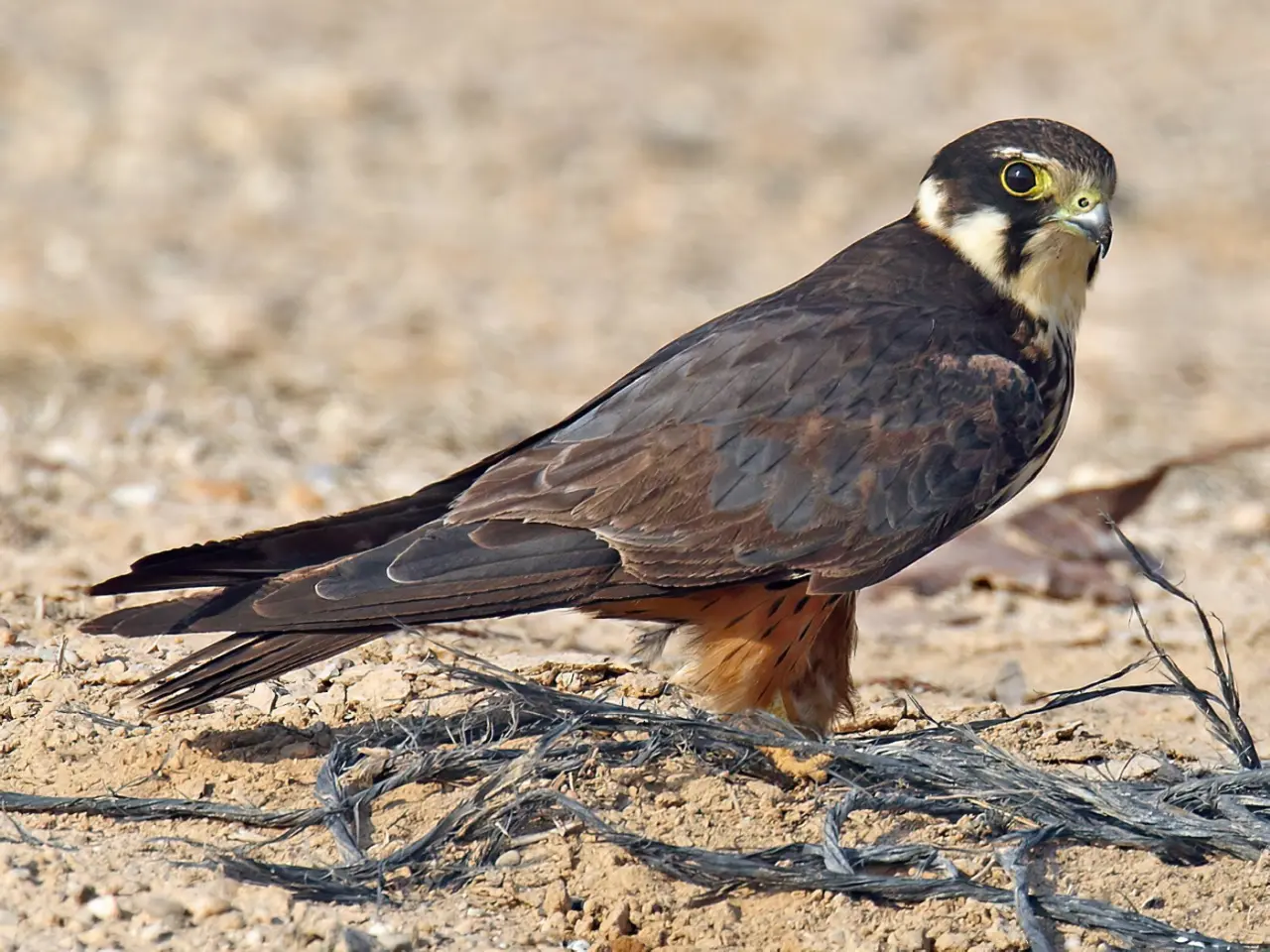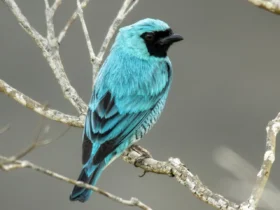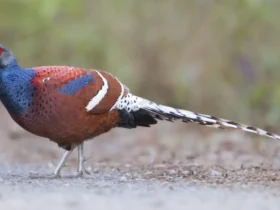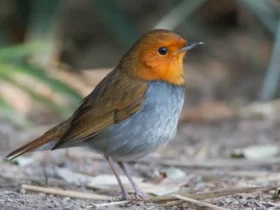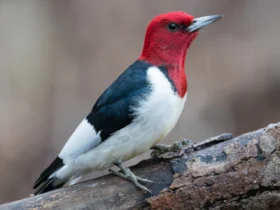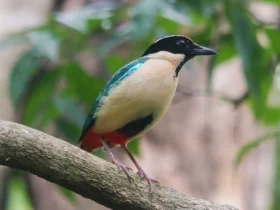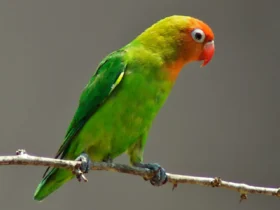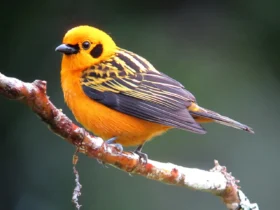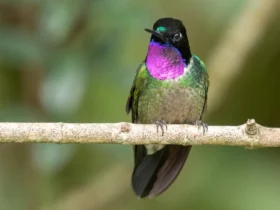In the wetlands of North and Central America, a striking and elegant bird with a unique bill and a rosy plumage commands attention. Introducing the Roseate Spoonbill (Platalea ajaja), a captivating species that embodies the beauty and diversity of wetland ecosystems. Join us as we delve into the enchanting world of the Roseate Spoonbill and uncover the fascinating characteristics that make it a beloved symbol of wetland conservation.
Roseate Spoonbill images

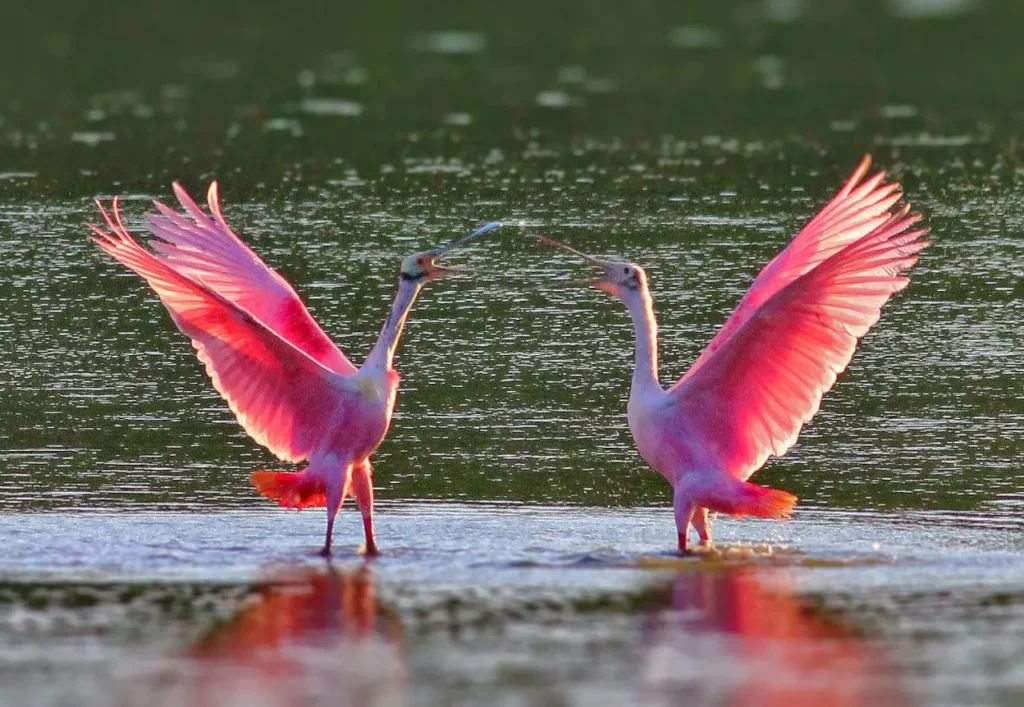
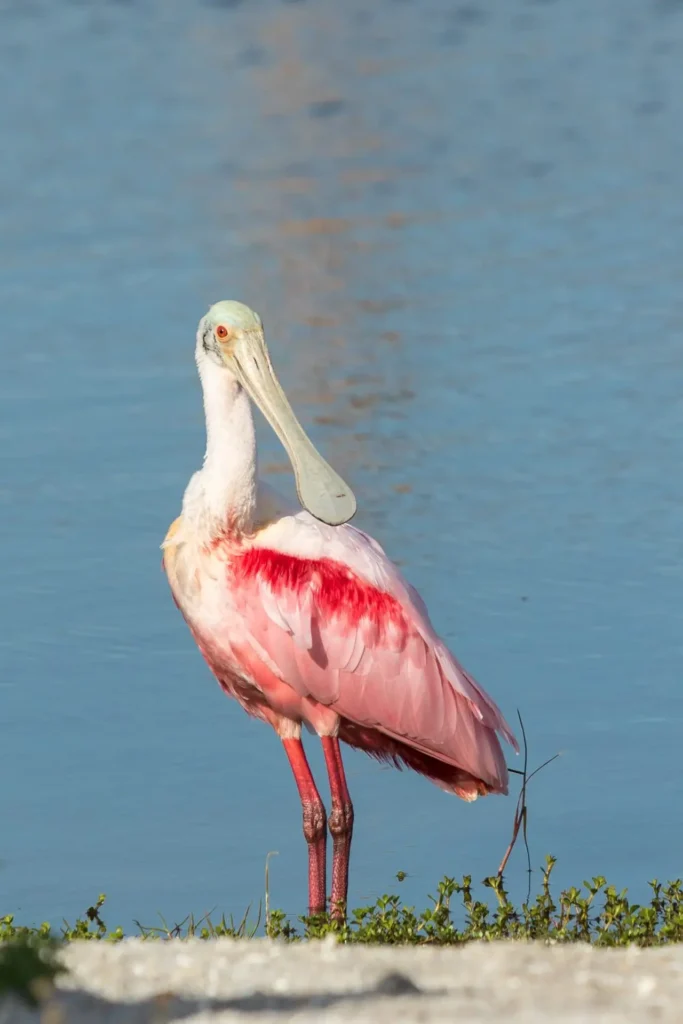
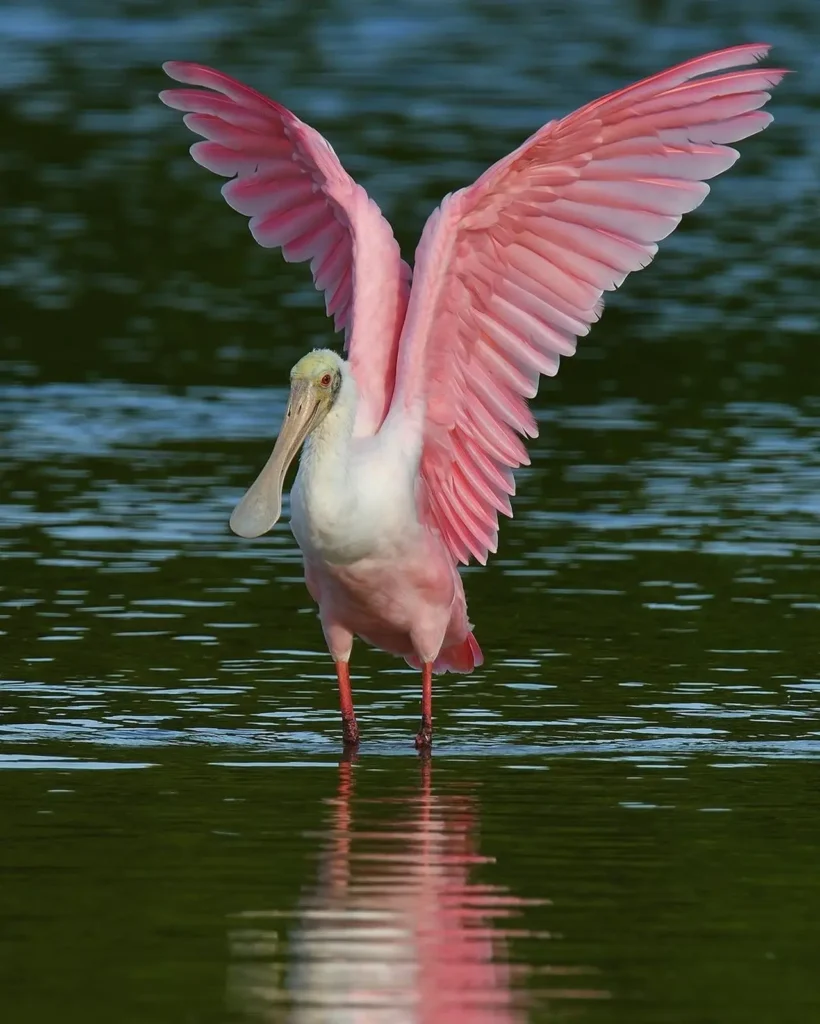






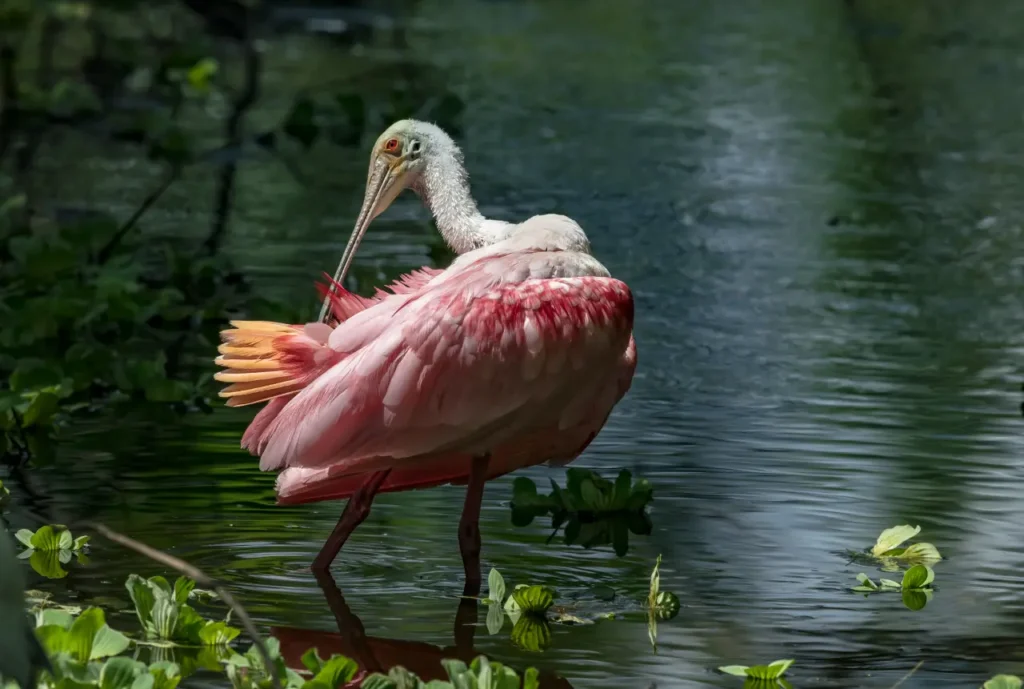


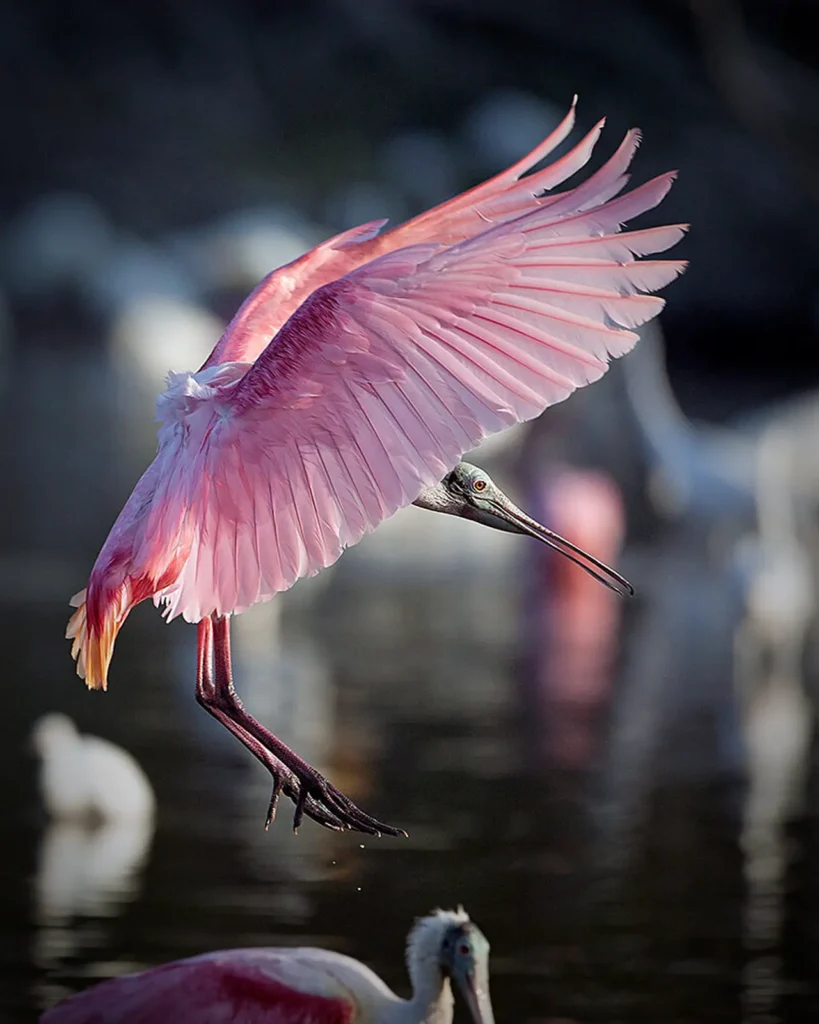




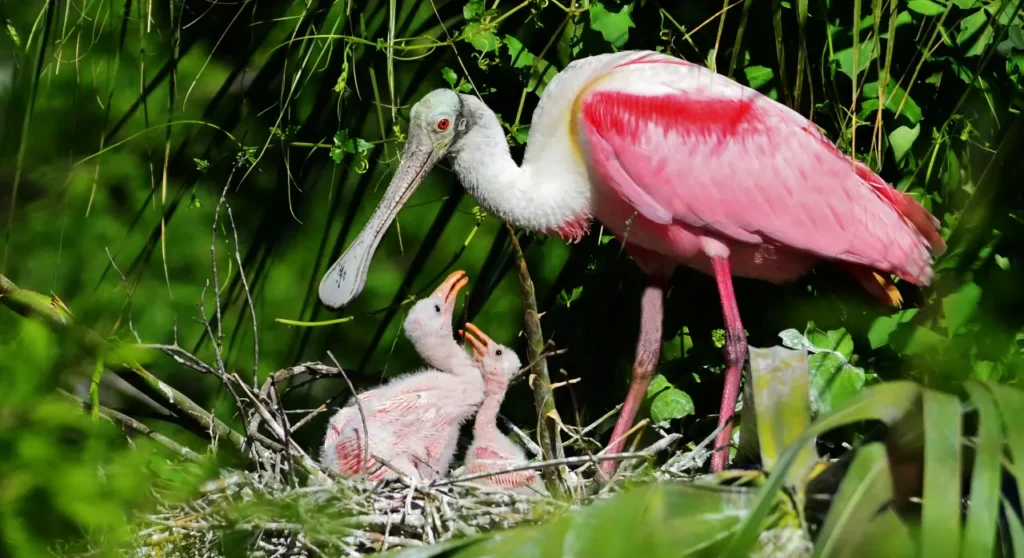

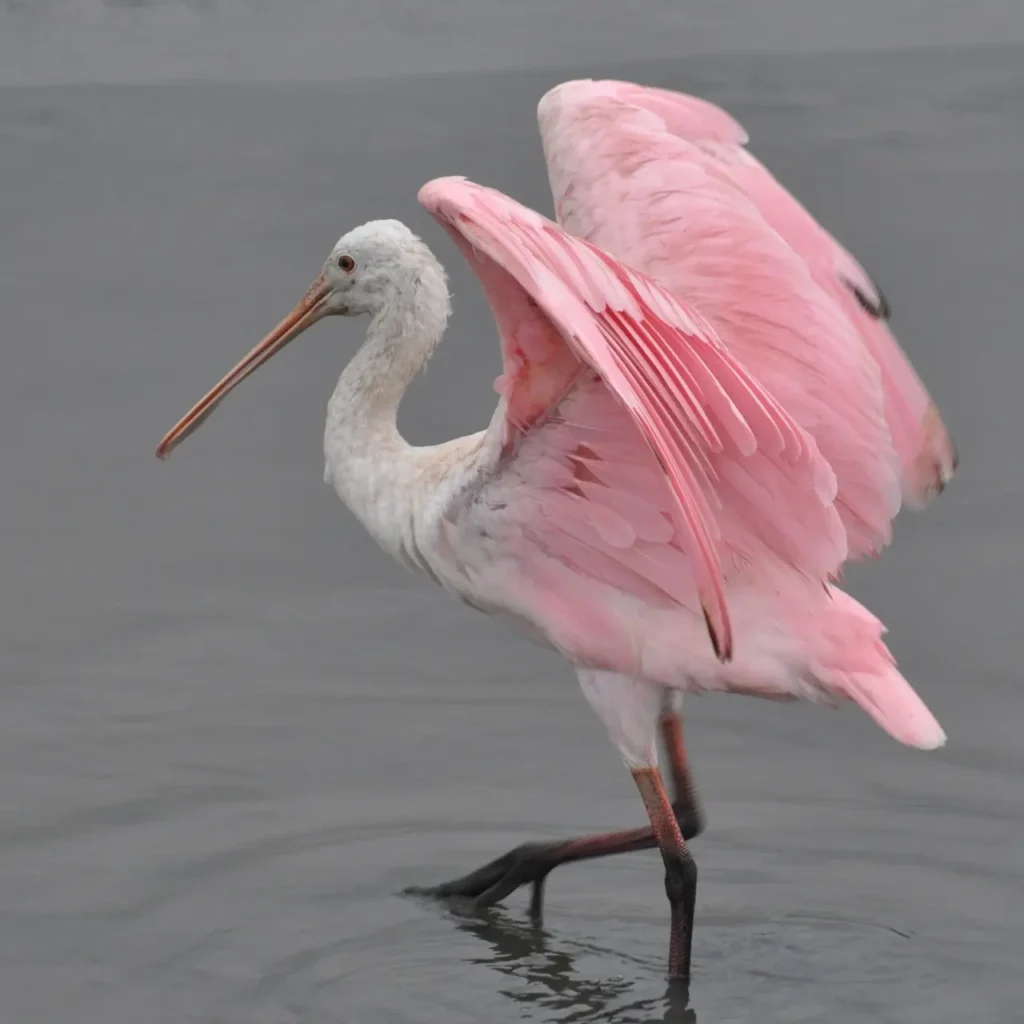

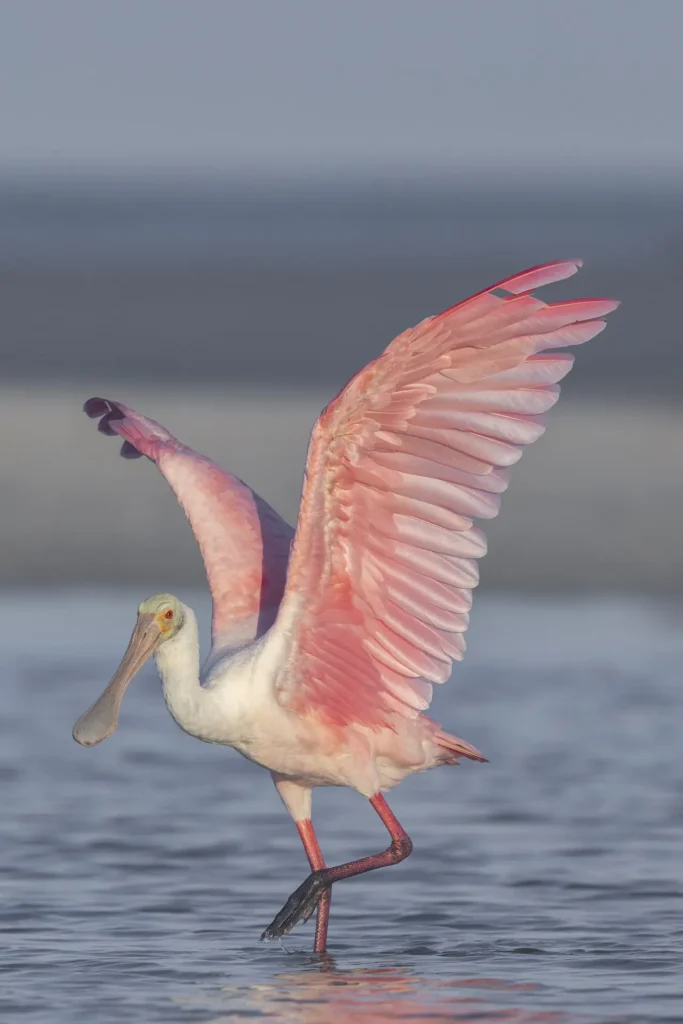
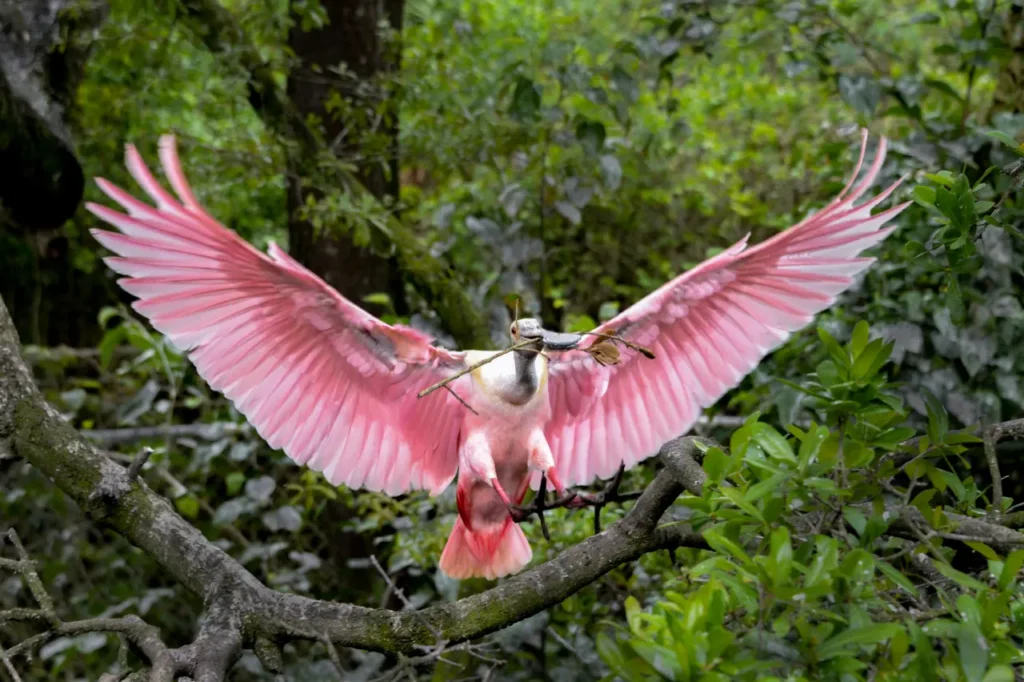

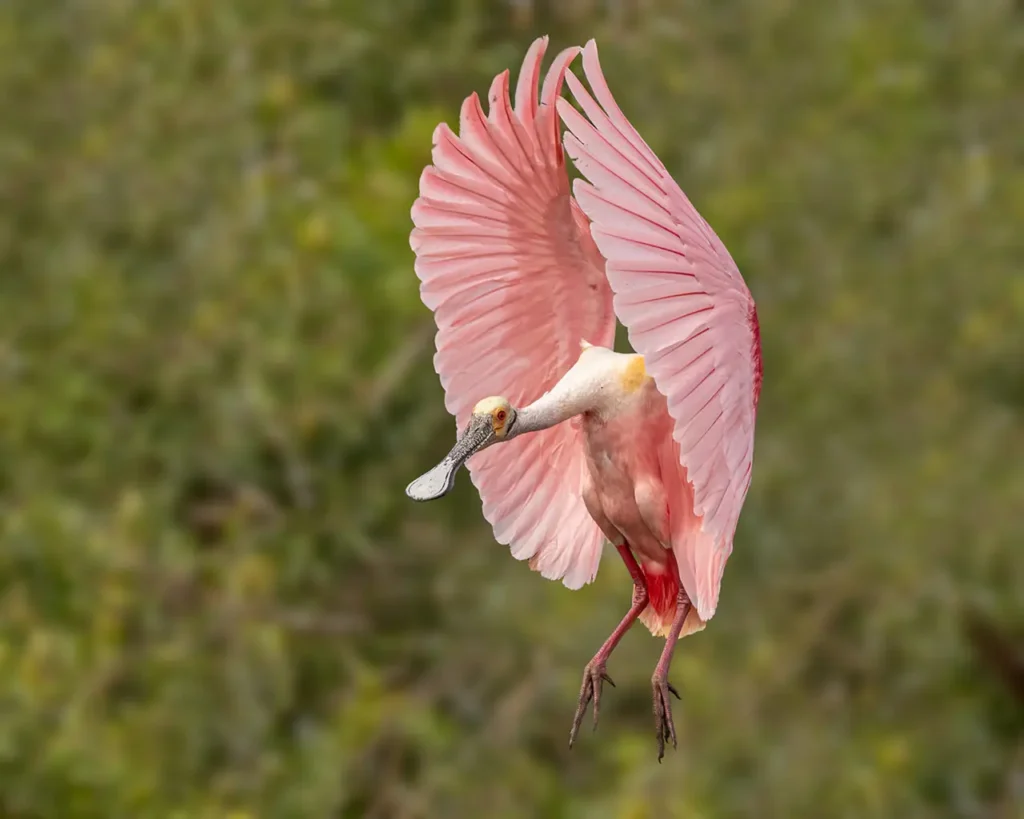



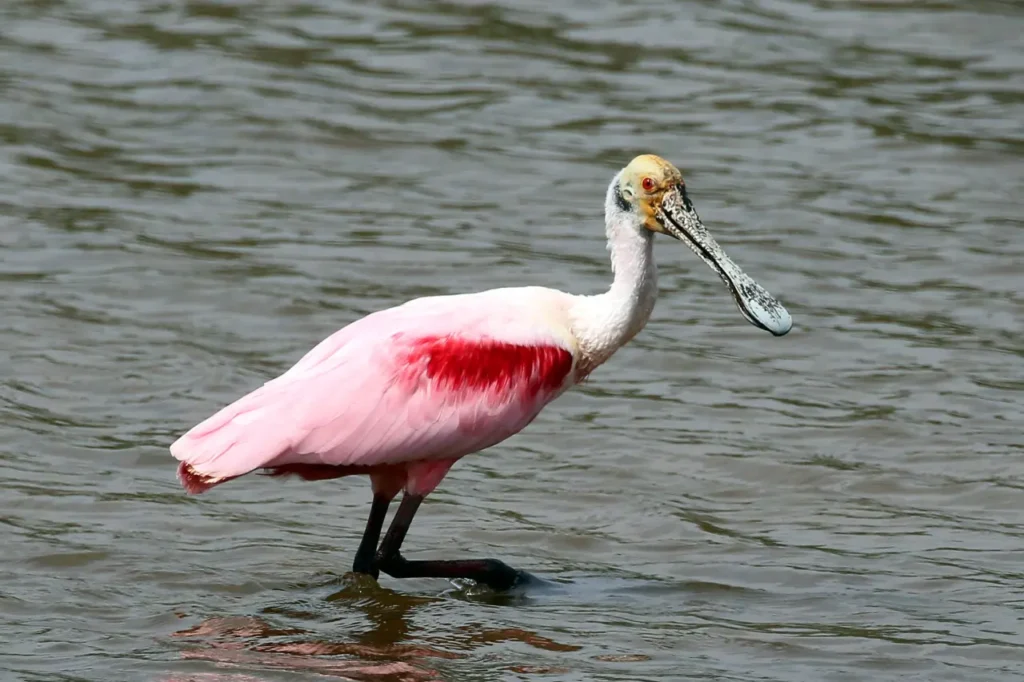
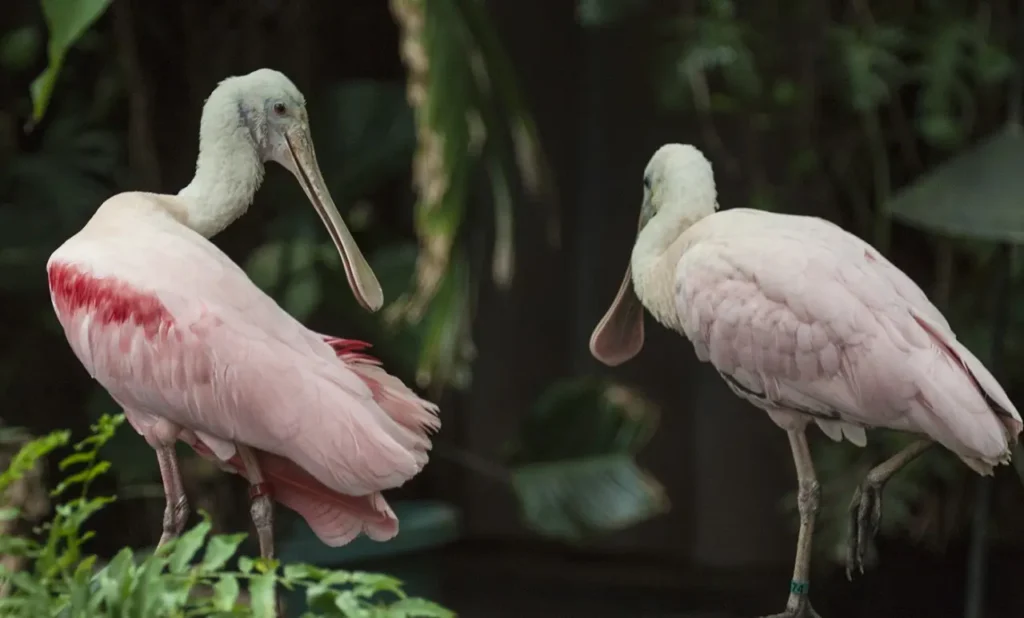

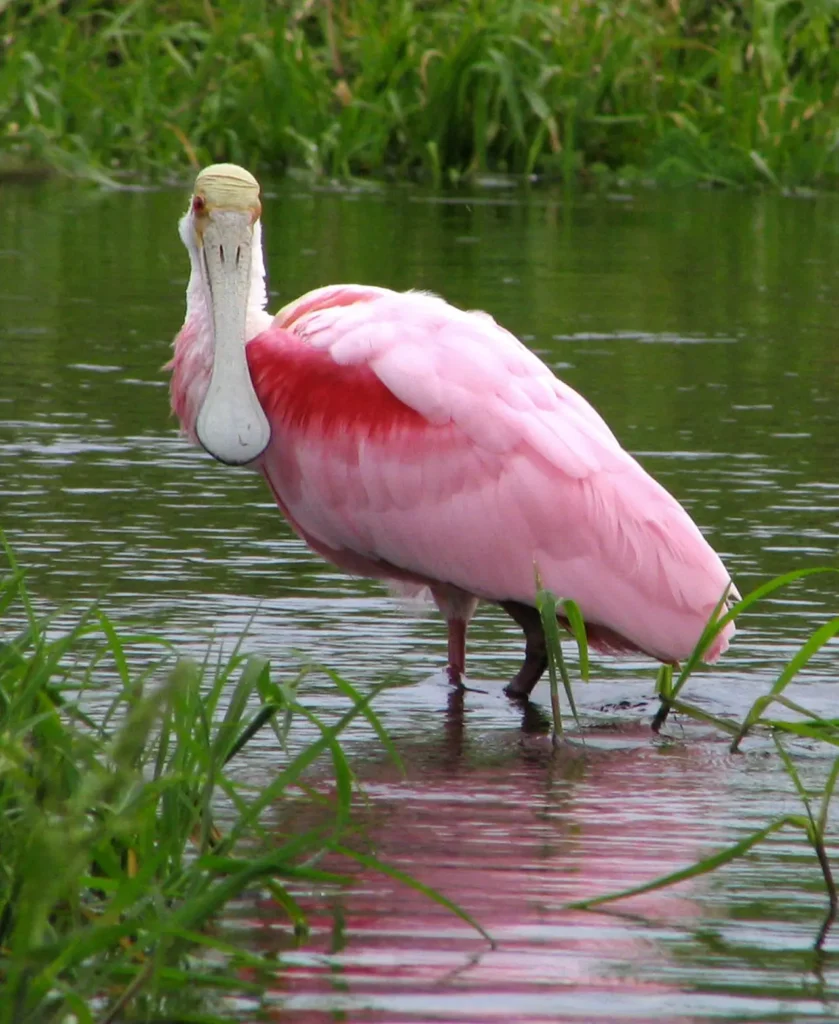
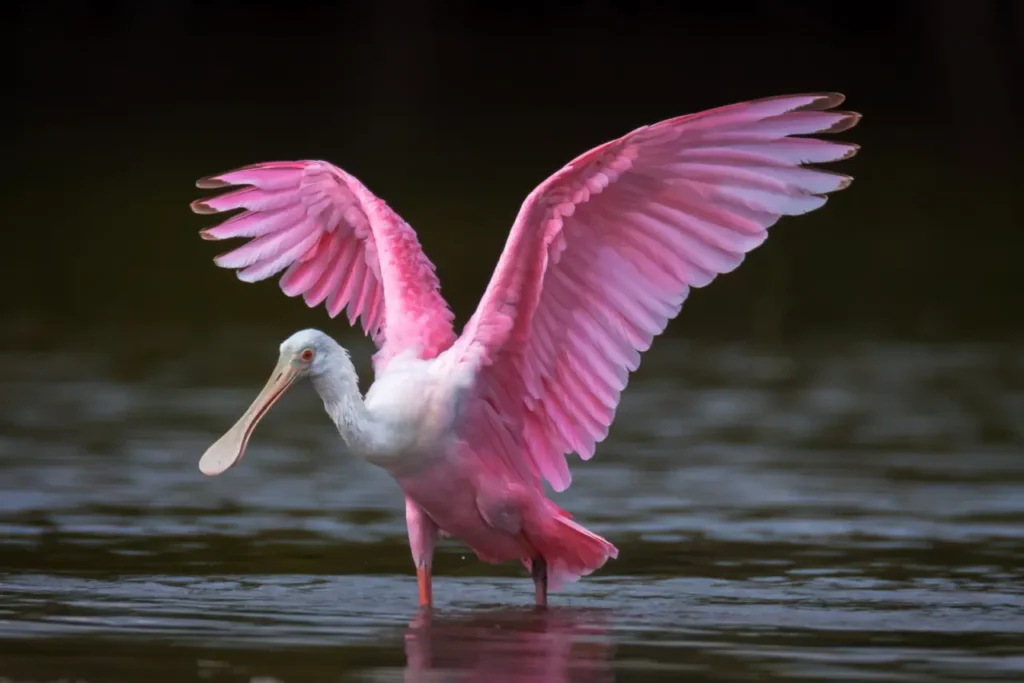
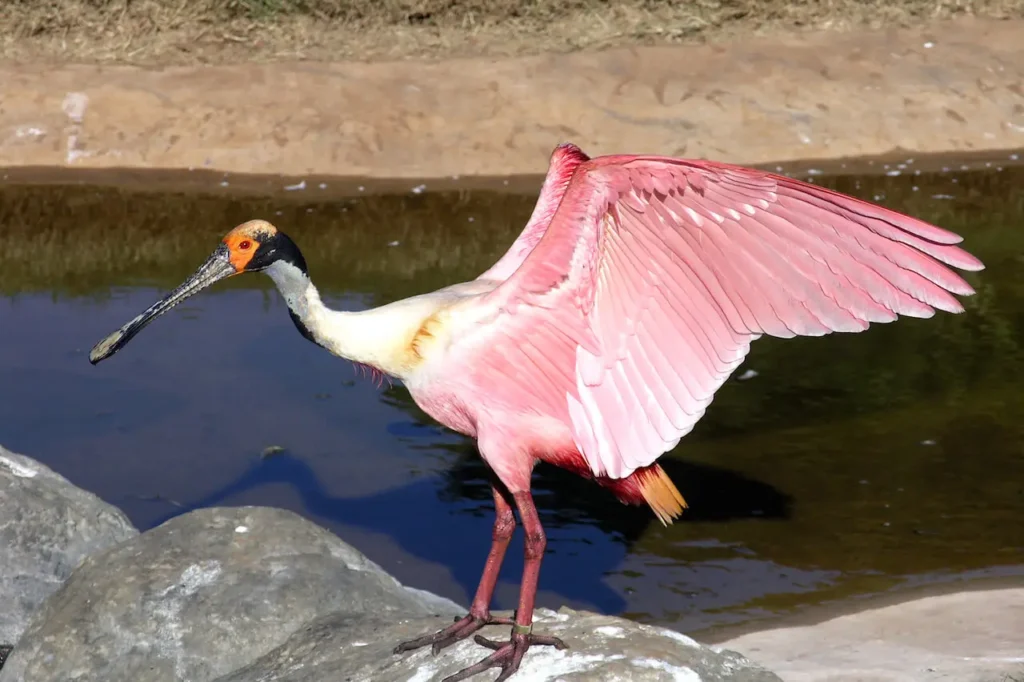
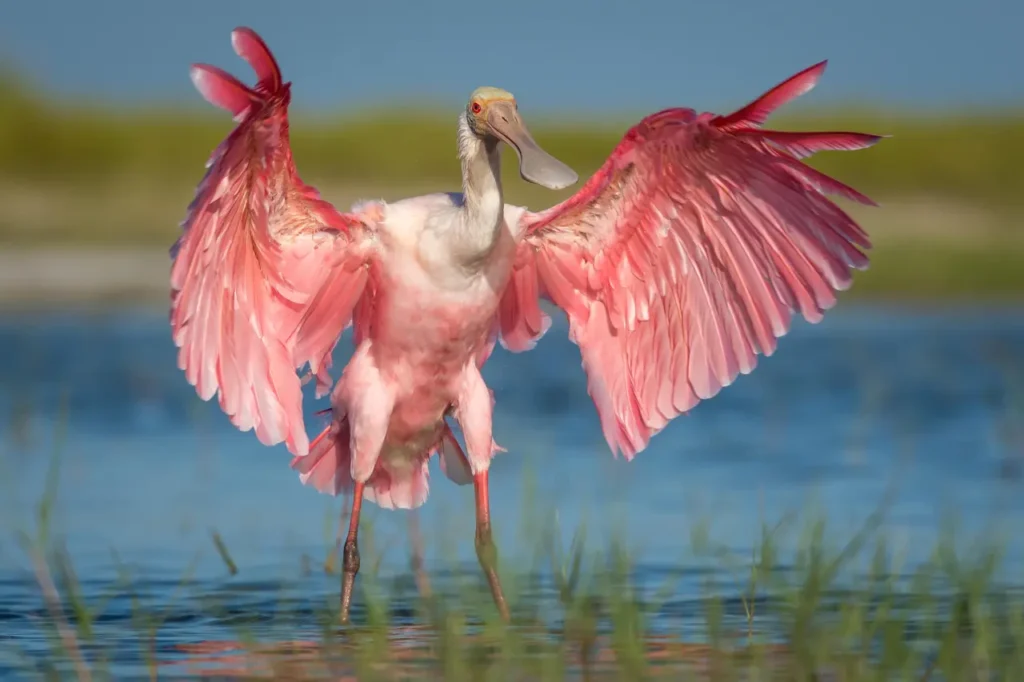

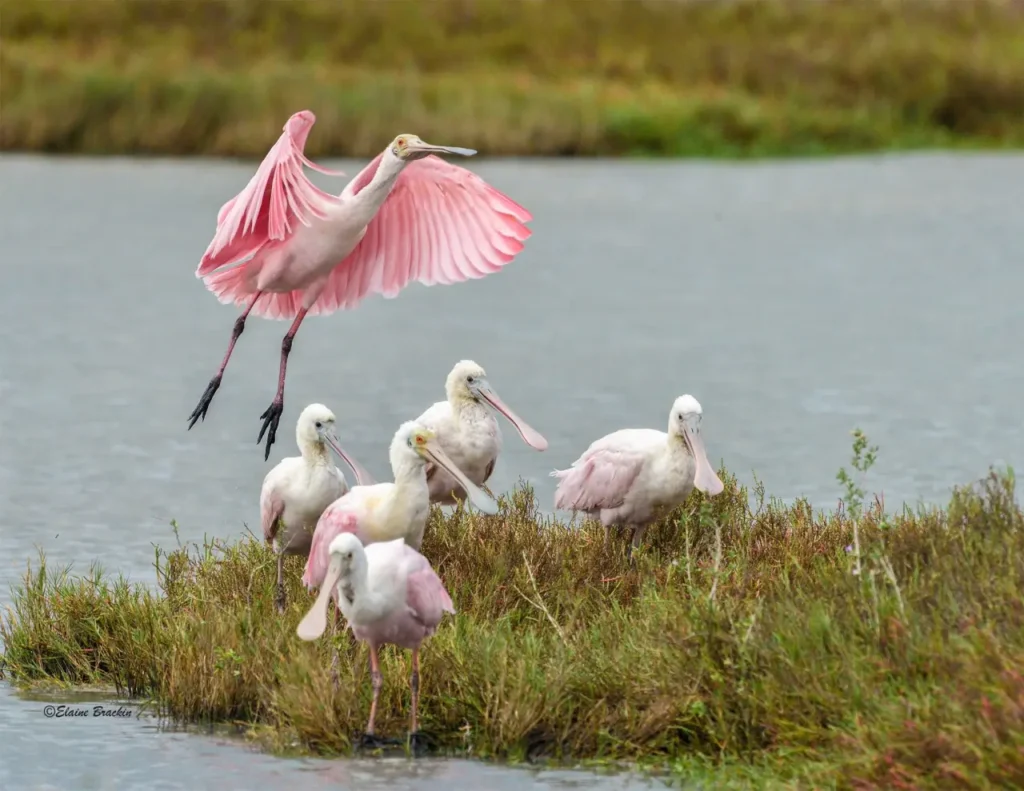
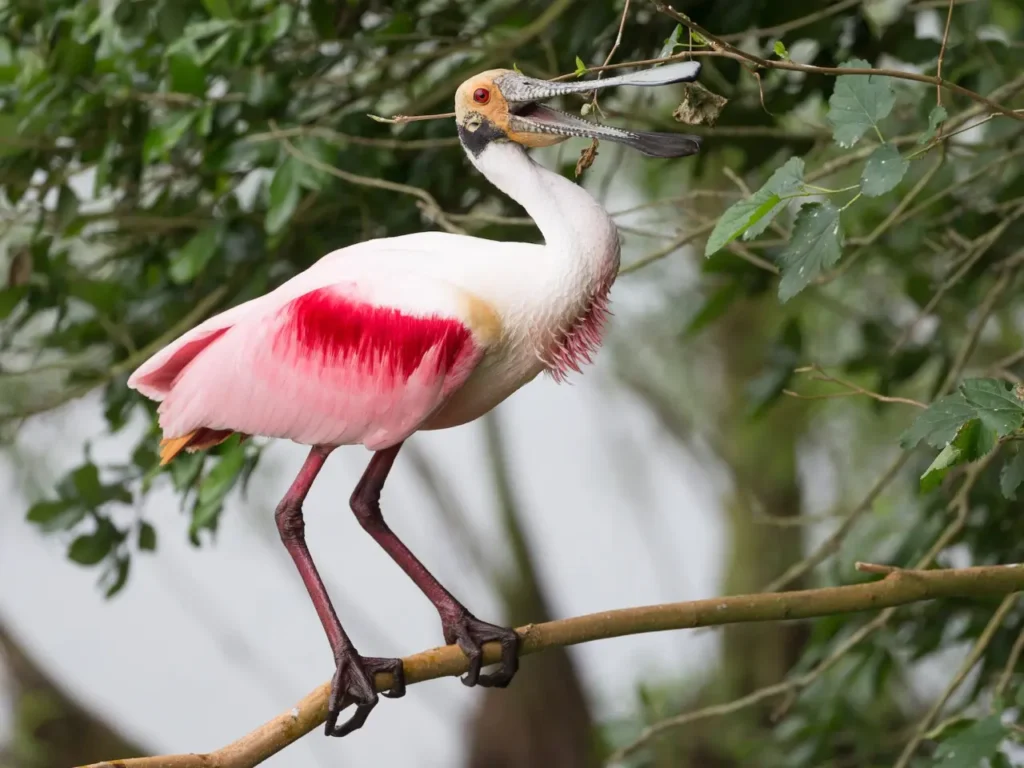

Facts about Roseate Spoonbill
The Roseate Spoonbill is known for its distinct appearance, characterized by its vibrant pink feathers and long, spoon-shaped bill. These large wading birds stand out in their natural habitats, captivating observers with their graceful presence. With a wingspan reaching up to five feet (1.5 meters) and a height of approximately two and a half feet (75 centimeters), they are an impressive sight to behold.
One of the most striking features of the Roseate Spoonbill is its bill, which sets it apart from other birds. The bill is long and flat, with a spatulate shape resembling a spoon. This specialized tool is perfectly adapted for their feeding behavior, allowing them to sift through shallow water or mud in search of small aquatic invertebrates, crustaceans, fish, and insects. The unique bill acts like a sieve, capturing food as the bird sweeps its head from side to side. This feeding technique gives rise to their nickname “spoonbill” and showcases their remarkable ecological role as skilled foragers.
The plumage of the Roseate Spoonbill is a true marvel. As juveniles, they have a white or pale pink coloration, which gradually develops into a stunning rosy hue as they mature. The vibrant pink feathers are the result of their diet, as pigments from the crustaceans they consume are absorbed into their feathers. This striking coloration not only adds to their visual allure but also serves as a natural camouflage among the mangroves, salt marshes, and coastal wetlands they call home.
Roseate Spoonbills are highly social birds and are often found in large colonies, nesting and foraging together. Breeding season brings about elaborate courtship displays, with males engaging in intricate rituals to attract females. Nests are constructed in trees or shrubs near water, and both parents participate in incubating the eggs and caring for the hatchlings. The chicks are initially featherless and vulnerable but quickly grow and develop under the watchful eyes of their attentive parents.
Conservation efforts are essential to protect the Roseate Spoonbill and its wetland habitats. These delicate ecosystems face numerous threats, including habitat loss, pollution, and disturbance. Preservation and restoration of wetlands, along with sustainable management practices, are crucial for the survival of this iconic species and the myriad of other plant and animal species that depend on wetland ecosystems.
The Roseate Spoonbill serves as an ambassador for wetland conservation, captivating nature enthusiasts and birdwatchers alike. Its elegant presence and vibrant plumage inspire a sense of awe and appreciation for the delicate balance of nature. By raising awareness, supporting conservation initiatives, and promoting responsible environmental practices, we can ensure the preservation of these magnificent birds and the invaluable wetland habitats they rely on.
Encountering a Roseate Spoonbill in its natural habitat is a true privilege, providing a glimpse into the intricate and interconnected world of wetlands. As we admire their grace and beauty, let us also embrace our role as stewards of the environment and work together to safeguard these remarkable birds and the precious wetlands they call home.
